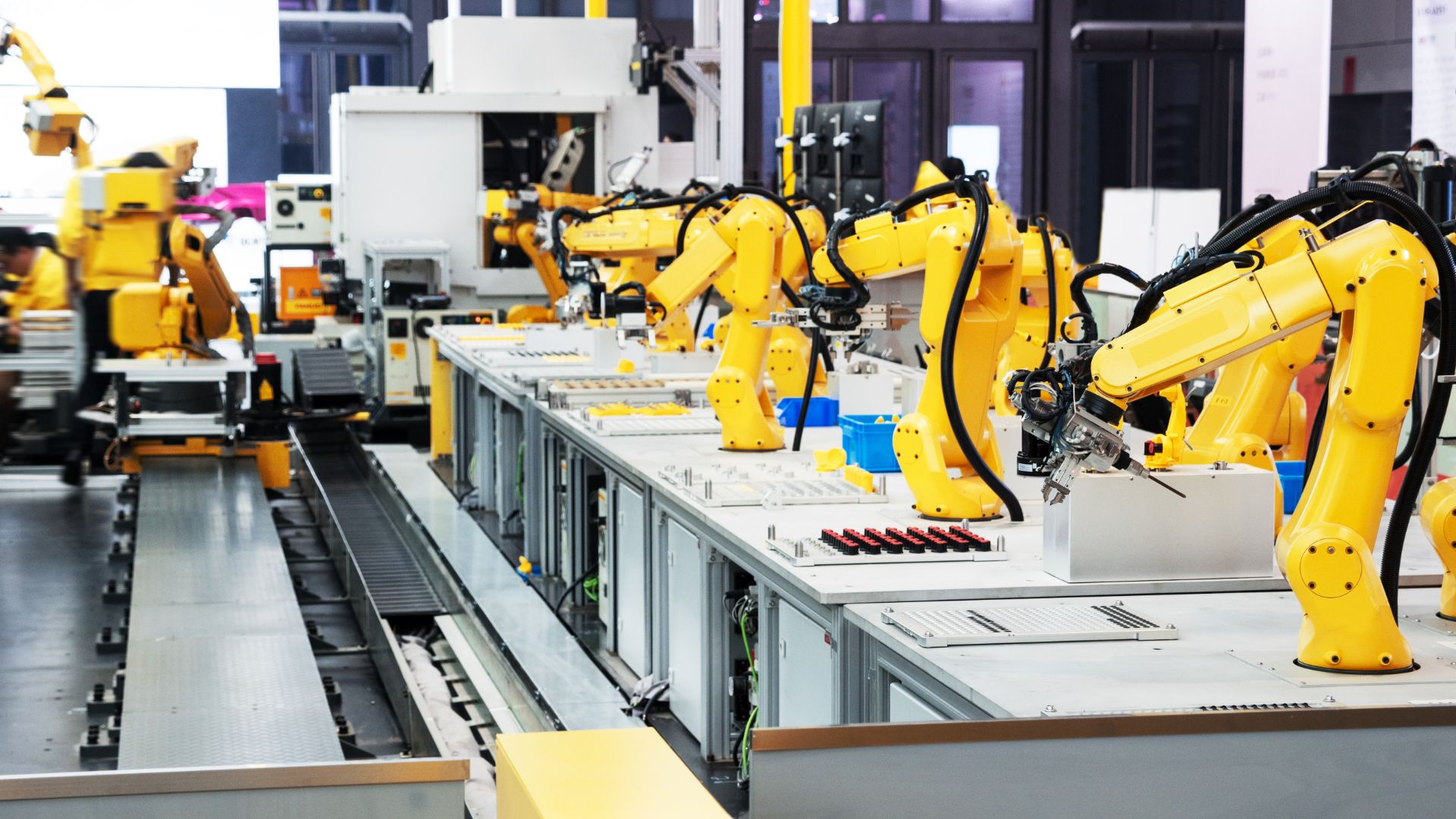In the rapidly evolving landscape of global manufacturing, artificial intelligence in manufacturing stands at the forefront of a technological revolution. With its unparalleled ability to analyze data, learn from experiences, and make informed decisions, Artificial Intelligence in Manufacturing is transforming the way factories operate, products are made, and customer demands are met. This blog delves into the myriad ways AI is optimizing manufacturing operations, offering insights into its applications, benefits, and future potential.
Understanding Data Science and Artificial Intelligence in Manufacturing
At its core, AI in manufacturing refers to the use of machine learning algorithms and other cognitive technologies to improve production processes. This innovative approach is transforming the manufacturing sector by enhancing efficiency, reducing costs, and increasing product quality. AI in manufacturing encompasses a wide range of applications, each tailored to meet specific operational needs. Key applications include predictive maintenance, which uses data analytics to predict equipment failures before they occur, thereby reducing downtime and maintenance costs. Quality control is another area where AI excels, with machine learning models analyzing products in real time to detect defects, ensuring consistent product quality.
The evolution of data science and artificial intelligence has been rapid. Advancements in computational power have made it possible to process and analyze vast amounts of data at unprecedented speeds. Coupled with significant progress in data analytics and machine learning algorithms, these developments have driven the increased adoption of AI in factories worldwide. Today, manufacturers are leveraging AI to not only streamline operations but also to enable more intelligent decision-making and to create smarter, more autonomous production systems. This ongoing integration of AI into manufacturing heralds a new era of industrial productivity and innovation.
AI Use Cases in Manufacturing
Predictive Maintenance
One of the most significant applications of AI in manufacturing is predictive maintenance. Traditional maintenance schedules rely on routine checks or responding to equipment failure, which can be costly and inefficient. AI changes this paradigm by analyzing data from sensors and machines to predict when equipment might fail, allowing for timely maintenance that can prevent costly downtime and extend the life of machinery.
Quality Control
AI algorithms are also revolutionizing quality control in manufacturing. By continuously monitoring and analyzing the production process, AI can identify defects or variations from the standard quality in real-time. This not only ensures that products meet high-quality standards but also reduces waste and improves efficiency.
Supply Chain Optimization
The complexity of modern supply chains makes them perfect candidates for optimization through AI. By forecasting demand, managing inventory levels, and optimizing logistics, AI can significantly reduce costs and improve supply chain resilience. This is particularly valuable in today’s fast-paced market where consumer demands are constantly changing.
Robotics and Automation
Robotics and automation have been part of manufacturing for decades, but AI is taking these technologies to new heights. AI-driven robots are capable of performing complex tasks with precision and adaptability, from assembling products to handling materials. This not only boosts efficiency but also frees human workers to focus on more strategic and creative tasks.
AI in Factories – Revolutionizing Manufacturing Processes
The fusion of Artificial Intelligence (AI) with the Internet of Things (IoT) is revolutionizing the manufacturing sector, leading to the emergence of “smart factories.” In these environments, every component of the production line, from assembly robots to supply chain logistics, is interconnected through a network of sensors and software. This level of integration allows for unparalleled efficiency and optimization.
Smart factories utilize AI to analyze vast amounts of data generated by the production process in real-time. By doing so, they can predict machine failures before they happen, optimize production schedules based on various inputs, and even adjust operations on-the-fly to accommodate last-minute changes in demand or supply. This real-time adjustment capability ensures that production is not only faster but also more flexible and adaptable to changing market conditions.
AI-driven analytics help in identifying inefficiencies and bottlenecks in the production process, enabling managers to take proactive steps to mitigate these issues. This leads to a significant reduction in downtime, enhances productivity, and minimizes waste, contributing to a more sustainable manufacturing process.
AI Applications in Manufacturing Beyond the Factory Floor
Design and Development
AI’s impact extends beyond the factory floor into the realms of product design and development. By leveraging AI for rapid prototyping and simulation, manufacturers can drastically reduce the time and cost associated with bringing new products to market. AI also enables the customization of products to meet individual customer needs without sacrificing efficiency or scalability.
Customer Personalization
In a market where consumers increasingly value personalized products, AI offers manufacturers a competitive edge. By analyzing customer data, AI can help create customized offerings, enhancing customer satisfaction and loyalty.
Energy Management
Sustainability is a growing concern in manufacturing, and AI is playing a crucial role in addressing it. Through monitoring and optimization, AI can significantly reduce energy consumption in manufacturing processes, contributing to both cost savings and environmental sustainability.
The Future of Data Science and Artificial Intelligence in the Manufacturing Industry
As we look to the future, it’s clear that data science and artificial intelligence will continue to reshape the manufacturing industry. Emerging trends such as digital twins, advanced robotics, and machine learning models promise to further enhance efficiency, flexibility, and sustainability. However, the adoption of AI also poses challenges, including the need for skilled workers and considerations around data privacy and security.
Manufacturers must navigate these challenges thoughtfully, recognizing that the successful implementation of AI requires not just technological investment but also a commitment to workforce development and ethical considerations.
Embracing Artificial Intelligence in Manufacturing
Artificial intelligence is no longer a futuristic concept but a present-day reality that is optimizing manufacturing operations in profound ways. From predictive maintenance and quality control to design, development, and supply chain management, AI is enhancing efficiency, reducing costs, and enabling unprecedented levels of customization and flexibility. As manufacturers continue to navigate the opportunities and challenges presented by data science and artificial intelligence, one thing is clear: those who embrace this technology will be well-positioned to lead in the competitive global marketplace. The journey toward smart manufacturing is complex, but with the right strategies and support, it is one that can yield significant rewards.
Contact us today to learn more about how we can help your organization embrace the transformative power of AI. At Eontes, we can help shape a smarter, more sustainable future for manufacturing. So, it’s crucial for manufacturers to stay updated with the latest advancements in AI technology and adapt their processes accordingly to reap its benefits.




